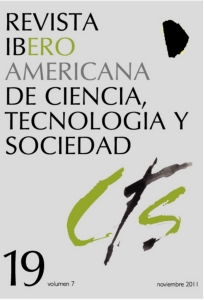The idea of technique and technology in an early paper of Herbert Marcuse
DOI:
https://doi.org/10.52712/issn.1850-0013-730Keywords:
technological progress, technological rationality, critical rationalityAbstract
In the thinking of Herbert Marcuse, three stages can be distinguished from the dominant interests in his production: the first deals with the history and historicity as ontological concepts; the second focuses its interest in the delimitation of the critical theory of society; and the third is an application of the theory outlined in the second stage to the critic of the advanced society. In the third stage are his most famous writings; the notions that stand out are the dimensionality and the technique and technology as a political project domain. This paper analyses aspects of the notions of technique and technology related to the second period of his production, which bear little relation to the last stage. In a paper published in 1941 (the year in which he also published Reason and Revolution) in Studies in Philosophy and Social Sciences Vol. IX, Some Social Implications of Modern Technology, Marcuse presents an investigation about what technology and technical efficiency accounted for the history of critical theory. Interestingly, not only there is no clue to his subsequent development of non-neutrality policy of the technique, but it also seems to take advantage of the technique and technology for its progressive use in favor of the stabilization of democracy. Another topic discussed is the rationality of traditional bourgeois society destroyed by authoritarian regimes and the emergence of a new rationality that accompanies the profile of a highly developed society, rationality which will attempt to delegitimize critical rationality.
Downloads
References
MARCUSE, H. (1978): “Filosofía y teoría crítica (Philosophie und kritische Theorie)”, en H. Marcuse: Cultura y Sociedad (Kultur und Gesellschaft I), trad. E. Bulygin y E. Garzón Valdés, Buenos Aires, Sur.
MARCUSE, H. (1999): “Some Social Implications of Modern Technology”, en A. Arato y E. Gebhardt (ed.): The Essential Frankfurt School Reader, Nueva York, Continuum, pp. 138-182, trad. de S. Barbosa, F. Mitidieri y C.Segovia (2010), instar manuscripti.
MITCHAM, C. (1989): ¿Qué es la filosofía de la tecnología?, trad. C. Cuello Nieto y R. Méndez Stingl, Barcelona, Anthropos.
MUMFORD, L. (1979): Técnica y Civilización (Technics and Civilization, 1934), trad. Aznar de Acevedo, Madrid, Alianza.
VEBLEN, T (1989) Teoría de la clase ociosa (The Theory of the Leisure Class, 1899), trad. V. Herrero, México, FCE, 2ª edición.
WEBER, M. (1922): Economía y Sociedad, Esbozo de sociología comprensiva, en J. Winckelmann (ed.), México, FCE.
Downloads
Published
How to Cite
Issue
Section
License
Copyright (c) 2024 CC Attribution 4.0

This work is licensed under a Creative Commons Attribution 4.0 International License.
All CTS's issues and academic articles are under a CC-BY license.
Since 2007, CTS has provided open and free access to all its contents, including the complete archive of its quarterly edition and the different products presented in its electronic platform. This decision is based on the belief that offering free access to published materials helps to build a greater and better exchange of knowledge.
In turn, for the quarterly edition, CTS allows institutional and thematic repositories, as well as personal web pages, to self-archive articles in their post-print or editorial version, immediately after the publication of the final version of each issue and under the condition that a link to the original source will be incorporated into the self-archive.











